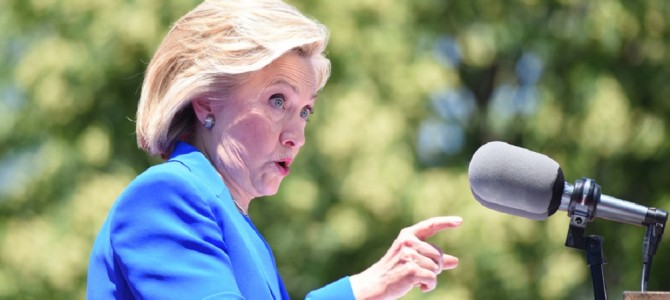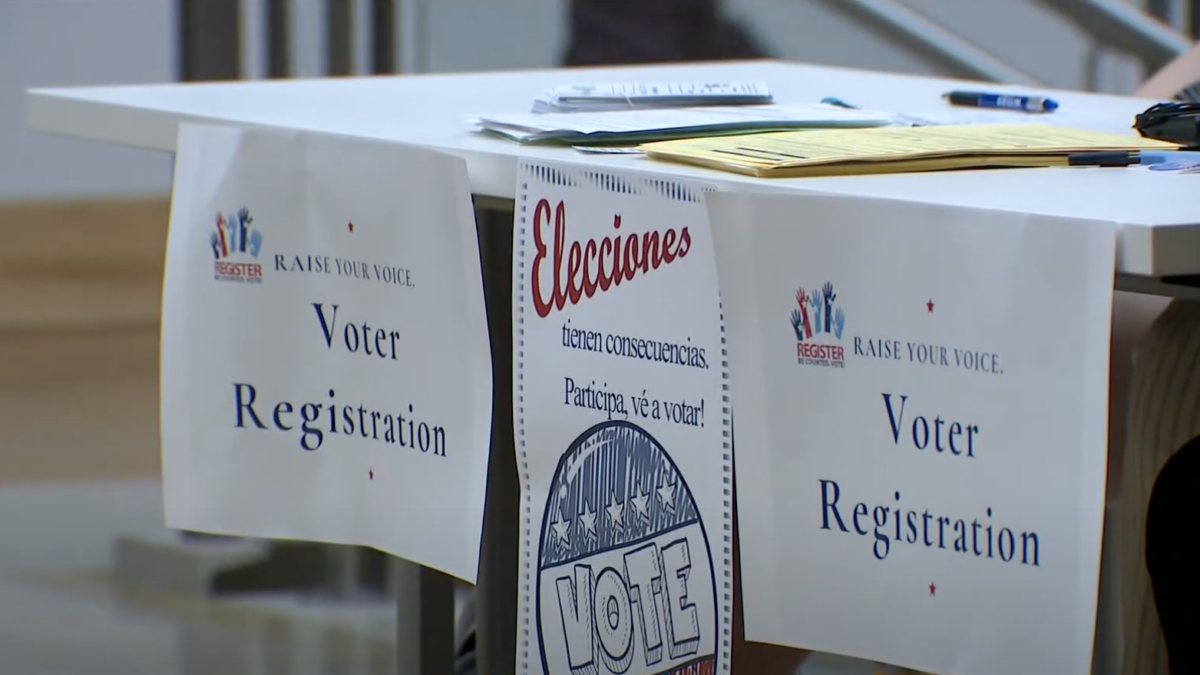
National Review’s Ramesh Ponnuru recently gave voice to the deep, dark fear conservatives have about 2016: Hillary Clinton will probably be our next president. It pains me to say I think Ramesh is right. But the maddening thing is he doesn’t have to be. America is acutely aware of Hillary’s character flaws—how is it possible then that she remains an electoral colossus?
According to Huffington Post’s aggregate poll tracker, nearly 52 percent of Americans have an unfavorable view of Hillary Clinton—her worst score ever. A recent Quinnipiac University poll found that 61 percent think she is neither honest nor trustworthy, another record low for Hillary. She had better numbers in 2008, an amazing statistic considering she lost her party’s nomination that year.
When only Democrats are surveyed, the picture is much rosier: Gallup reports that 74 percent have a favorable view of the former secretary of State. The latest Monmouth University poll of likely Iowa Democratic caucus-goers has Hillary opening up a 41-point lead over rival Bernie Sanders.
What’s most interesting about these numbers is not that a large swath of the American public finds Hillary untrustworthy, or even that Democrats remain supportive of her, but that she is not actively pushing back against the charge that she is calculating, disingenuous, and insincere with anything resembling a convincing counter-narrative. Much of America seems to acknowledge her personal shortcomings yet nevertheless grants her a vote of confidence.
Hillary Should Be Doing Image Repair
The best evidence we have of this comes from the candidate herself: Clinton is not behaving the way a candidate suffering such low favorability levels should behave. Her recent policy announcements, which conventional political wisdom would suggest be used to rehabilitate her character by showcasing consistency with past statements, go in the opposite direction, implying an indifference toward, if not a brazen contempt for, political consistency.
Hillary’s dismissiveness toward concerns over her behavior (her latest reaction to the email scandal, when CNN’s Jake Tapper recently brought up the issue, was to laugh uncontrollably), and her embrace of what we might euphemistically call ideological adaptability are unprecedented for a politician suffering such low favorability levels.
I’m not suggesting that a public figure embroiled in controversy is a political novelty. The real story here is that a politician with Hillary’s ethical baggage would, while currently enduring several scandals, find flip-flopping on significant issues politically permissible. We’re not talking Whitewater, a scandal so ancient it has receded from her rearview; these are policy announcements being made within a multi-scandal political episode happening now. You would expect a politician widely considered untrustworthy to project political conviction—not necessarily because she possesses it, but because it is politically expedient.
Yet Hillary’s recent reversals on the Keystone XL pipeline and the Trans-Pacific Partnership trade deal strongly suggest that she thinks policy inconsistency is no longer electorally debilitating. Have we reached a point where this sort of ideological shape-shifting—prior to coming out against the TPP, she vocalized support for it on 45 separate occasions—does not disqualify one for the presidency? Have we really reached a point where a candidate with character marks as low as Hillary’s is not merely among the presidential hopefuls, but is actually the overwhelming favorite to be inaugurated as our 45th president?
Maybe Voters Don’t Care About Honesty
The way Hillary has maneuvered this election cycle—her willingness to reverse her positions, the half-hearted and utterly implausible explanations she offers for her behavior, her dismissiveness of substantive criticisms—suggest one of two possibilities: either Hillary is making bad political decisions, or she has concluded that voters don’t quite care about character as much as they used to.
If the former, then the explanation is simple: Hillary’s an overrated politician who, as Michael Brendan Dougherty keeps reminding us, has never won a difficult election. If this is true, the general election will be a reckoning for her. However, if it’s the latter, then presumably Hillary has done the cost-benefit analysis for each potential policy option and has concluded it is more politically necessary for her to block Sanders from attacking her from the Left on trade and on the environment than it is to come across as ideologically consistent.
Hillary probably realizes Sanders does not pose a serious electoral challenge, and that these policy reversals could hurt her during the general election. The only explanation for her opting to reject Keystone and the TPP is that she must not think voters care as much about political conviction as they used to.
Just a short while ago they did care more—recall then-candidate Barack Obama in 2008 eventually eclipsing Hillary by focusing on attacking her character. In the years since, Hillary probably realized voters are more interested than ever in electing a candidate who can move the ball down the field. This is consistent with her recent self-promotion as a “progressive who gets things done.” She must sense that Democratic dissatisfaction with political gridlock is so sweeping that voters no longer care as much about integrity as they do about effectiveness.
For the Left, Dishonesty Is a Virtue
Indeed, Vox’s Matthew Yglesias has just floated the argument that Hillary’s character defects actually demonstrate just how strong and effective she’d be as president. Yglesias offers Hillary’s courage to be unethical as the harbinger of a new American exceptionalism. That’s where we are now.
Consider how absurd Hillary’s statements have been. She has claimed to be the most transparent public official in American history. This is the same public official who permanently deleted tens of thousands of emails in an effort to obstruct an imminent inquiry. Then, during the first Democratic debate, when Anderson Cooper brought up her policy reversals, Hillary explained that her flip flops really demonstrate her commendably open mind and willingness to learn. That’s right, her policy reversals don’t indicate a blinding commitment to political self-interestedness (blocking a Sanders attack), but are instances of educational growth; they reveal a candidate who is courageously willing to embrace the latest evidence.
The problem, as Politico’s Jake Shafer points out, is no new information has surfaced on these issues. This strongly suggests it isn’t a new argument that has caused Hillary to flip flop, but a new strategy. The crazy thing is, candidates no longer operate in a political environment that punishes dishonesty, inconsistency, and unabashed careerism.
Well, Democrats don’t. Conservatives have been sending pretty strong signals for a while now that Washingtonian ambition will not be rewarded electorally. America has more than it should need to disqualify Hillary from the presidency. It only takes a willingness to demand better for our country.









